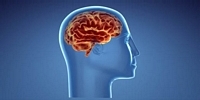Anorexia nervosa, bulimia nervosa and compulsive overeating disorders are severe illnesses that require professional treatment and counselling for recovery. Treatment centres provide a safe haven for eating disorder sufferers, where they can begin to heal with the help of qualified and compassionate counsellors.
A holistic approach to eating disorder treatment focuses on the symptoms as well as the origins of the illnesses. Holistic treatment programmes offer empathetic therapy that includes intensive individual counselling and support group therapy. Treatment can include an effective 12 Step recovery programme.
Healing the body, mind and spirit
Holistic treatment programmes aim to heal the body, mind and spirit. Healthy lifestyles, eating plans and sporting activities promote wellness and recovery from the physical effects of eating disorders. On admission to a treatment centre, each client is individually assessed and treated accordingly.
Registered dieticians draw up individualised meal plans consisting of wholesome, vitamin-rich foods. Exercise programmes are tailored to each patient's particular health condition and diagnosed eating disorder.
Healing activities such as yoga and meditation are offered at many eating disorder treatment facilities. These disciplines help recovering patients to focus and remain calm in their battle against the destructive illnesses of anorexia nervosa, bulimia nervosa and compulsive overeating disorder.
Treatment centres are usually situated in beautiful surroundings that exude tranquillity. Recovery is facilitated by this calm and serenity, and nature plays a pivotal role in the healing process.
Counselling and group therapy
The treatment of eating disorders is facilitated by intensive psychological therapy. Qualified therapists provide dedicated one-to-one counselling that confronts underlying issues and the root of the eating disorder. These counselling sessions are highly effective in helping patients to understand their eating disorders and how they manifest.
Support group therapy can be instrumental in the recovery process of those with eating disorders. Patients have the opportunity to share their experiences and relate to fellow patients' tribulations. The realisation that patients are not alone in their struggle is tremendously comforting and inspires hope.
12 step recovery programme
12 Step recovery programmes are regarded as an effective means of treating eating disorders. The 12 step philosophy requires that patients admit to having a problem as the primary step in recovery. The recovery programme is based on spirituality, not religion, and prayer and meditation is encouraged.
The 12 steps provide a healthy code of behaviour for patients to follow in their pursuit of recovery. These steps are essential in every day life once patients leave the treatment facility.
Residential treatment
Eating disorders are life-threatening illnesses that cause severe physical and emotional damage. Distorted self-images, self-loathing, low self-esteem and compulsive acts fuel destructive behaviours and sufferers inevitably lose control.
Long-term inpatient treatment is highly recommended for the effective treatment of eating disorders. Qualified counsellors require sufficient time to deal with and treat the compulsive behaviours and ingrained issues that plague eating disorder patients.
Residential care combined with a holistic all-encompassing approach to recovery and a 12 step programme is recognised as a successful treatment method for eating disorders.



